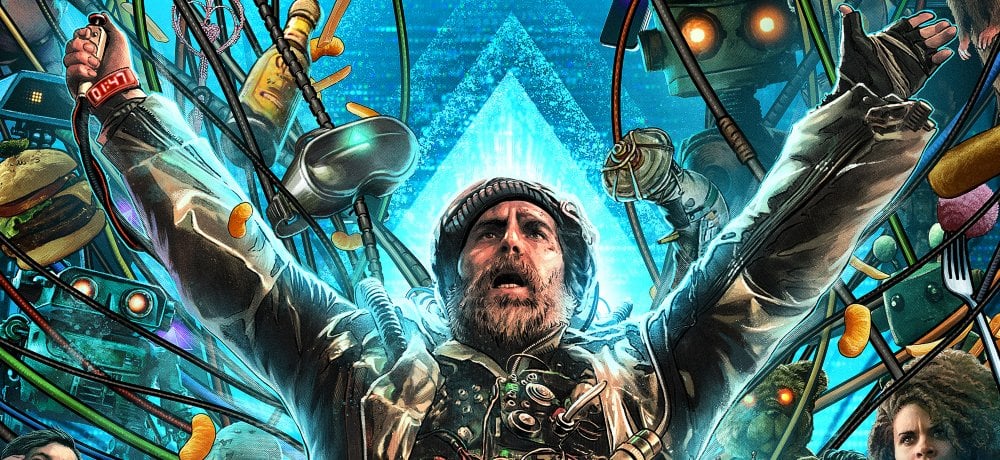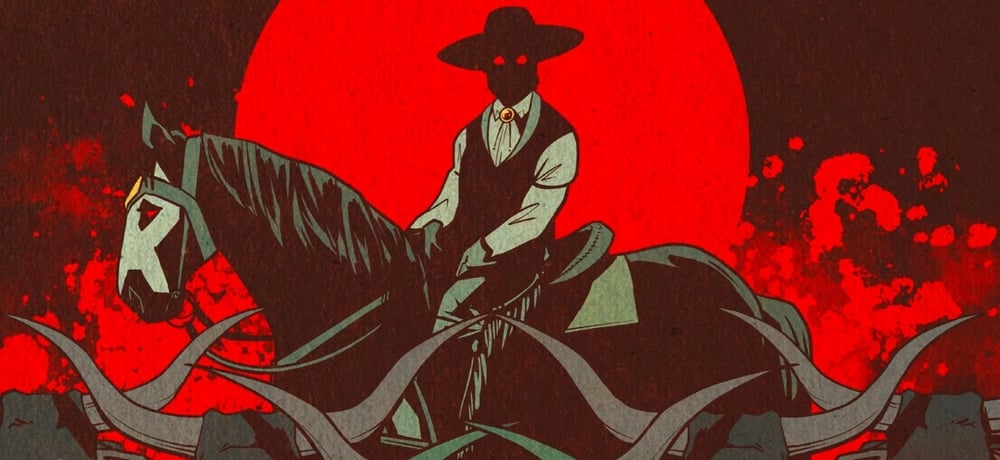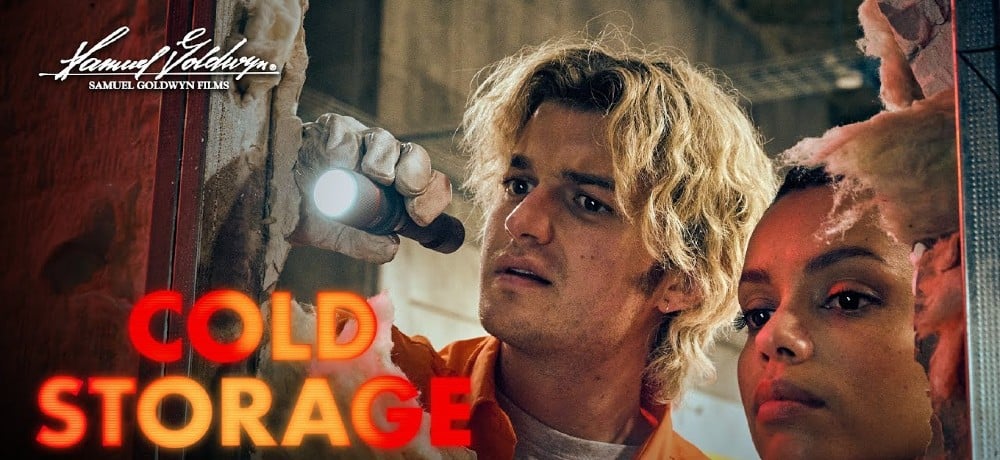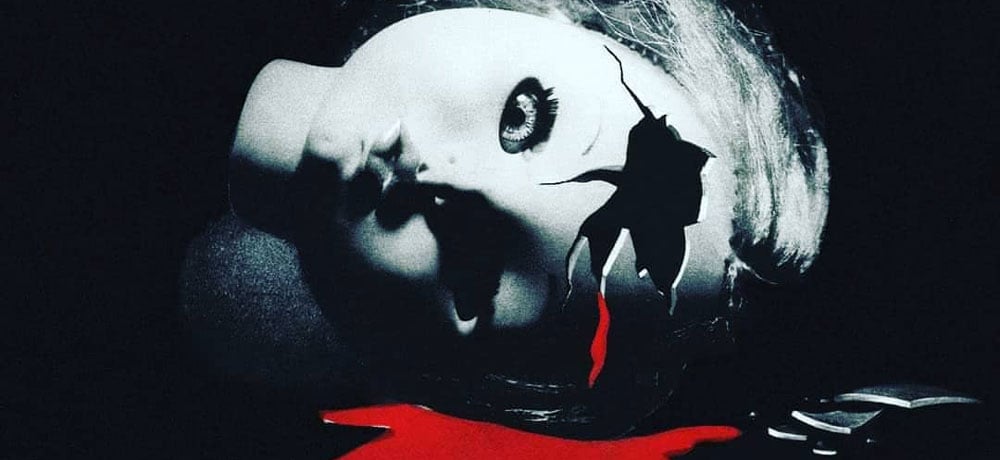






While his father Mario probably cast a longer shadow than anyone else in Italian horror cinema, Lamberto Bava has managed to leave a prominent mark on the genre through popular works such as Demons (1985) and Demons 2 (‘86). Today we’re going to rewind the clock to his official directorial debut, Macabre (1980), a truly ludicrous and bizarre film “inspired” by true events. I bet they never happened like this.
Bava Jr. certainly spent his time in the trenches, working for Dario Argento and helping his dad finish Shock (1977); while he wrote the script with friends Roberto Gandus, and Pupi and Antonio Avati as a lark after reading a newspaper story from the U.S., he was given the reins to bring this lurid story to the screen as his official calling card. And bring it he does.
Released three years later Stateside as Frozen Terror, Macabre (aka Macabro) did little business outside of its native land and received the usual dismissive reviews afforded most every Italian horror release when they hit these shores. Oh well; anyone turning their nose up at this one is missing out on an Italian approximation of a sweaty southern melodrama in all its lurid glory.
Jane (Bernice Stegers - Xtro) is a lonely and wealthy housewife in New Orleans. When her husband leaves for work, she hops in a cab to a boarding house, where she has a room for her and her side piece, Fred (Roberto Posse - Screamers). The house is owned by an elderly woman who looks after her blind adult son, Robert (Stanko Molnar - A Blade in the Dark), who lays on his bed as Jane and Fred make noises he’s never experienced in his life (insert sad emoji here). Jane, not a model spouse or parent, has left her older child Lucy (Veronica Zinny) to look after her little brother back home while she’s at her shag-cation; not a good call, as Lucy drowns him in the bathtub with his toy boat and phones mommy hysterical about the “accident”. Jane, surprisingly beside herself, gets Fred to drive her home, but he crashes his car and loses touch with his head. Jane, deciding that the day is pretty much a writeoff, checks into a mental facility.
When she’s released a year later, she doesn’t go back to her husband and daughter, but rather to the boarding house. Robert is now alone as momma has passed, and he welcomes Jane back with open arms, happy to share his house with the woman of his dreams. Except Jane has been acting suspicious; even though Robert hears her at night in the throes of passion, he knows no one else is in the house. Is Jane seeing Fred’s ghost, or is it something entirely more icky?
Let’s go with an emphatic ‘icky’, as Macabre lives up to its title with, more often than not, insinuation and suggestion. Surprising perhaps, given Lamberto’s upcoming films, yet this one is restrained in aesthetic if not intent. There are a few moments of grue, but it’s the ideas behind the film that will be stomach turning to some. (Not to fans of Necromantik, I’m guessing.)
Yes, necrophilia is involved if you haven’t guessed by now; Jane has a shrine to Fred in her room, complete with his Visa card hanging about the photo of his head, which she happens to be the proud, lustful owner of. Let’s just say the freezer is locked and she is the only one with a key. Add in the tubby time death and you have a nauseating treatise on the collapse of the nuclear family.
Or not. Lamberto and his pals seem to be taking the piss out of oh-so-serious European films by concocting the most outrageous scenario to see if the drama will crumble under its own weight. Miraculously, it never does - this is a credit to Bava Jr. for showing such restraint with the material; instead of using the flashier camerawork of his father or Argento, Lamberto and cinematographer Franco Delli Colli (Strip Nude for Your Killer) offer a calmer presentation and let the material speak for itself.
And what material it is: we have infidelity, killer kids, ear soup, blue balls, and a new definition of ‘giving head’, all set against the steamy streets of the French Quarter; what filmmaker could resist the temptation to go full Tennessee Williams?
The cast is game; Stegers knows precisely what type of film she’s in, and brings a smoldering, wide eyed intensity to Jane, who’s well aware of her own insanity and just accepts it. Just as strong is Moldar as Robert, the lonely, blind man who is in need of companionship and is willing to turn the other cheek - up to a point. Credit to Bava et al for not using Robert’s handicap for cheap thrills, instead portraying him as a very able protagonist.
He may have started in the family business, but to stay there Lamberto Bava would need the ability to find his own sliver of sun beyond his father’s shadow. Macabre shows a filmmaker more than ready to bask in it.
Macabre will be available on Blu-ray (Region B) from 88 Films in late May, 2020.
Next: Drive-In Dust Offs: THE KILLING OF SATAN (1983)